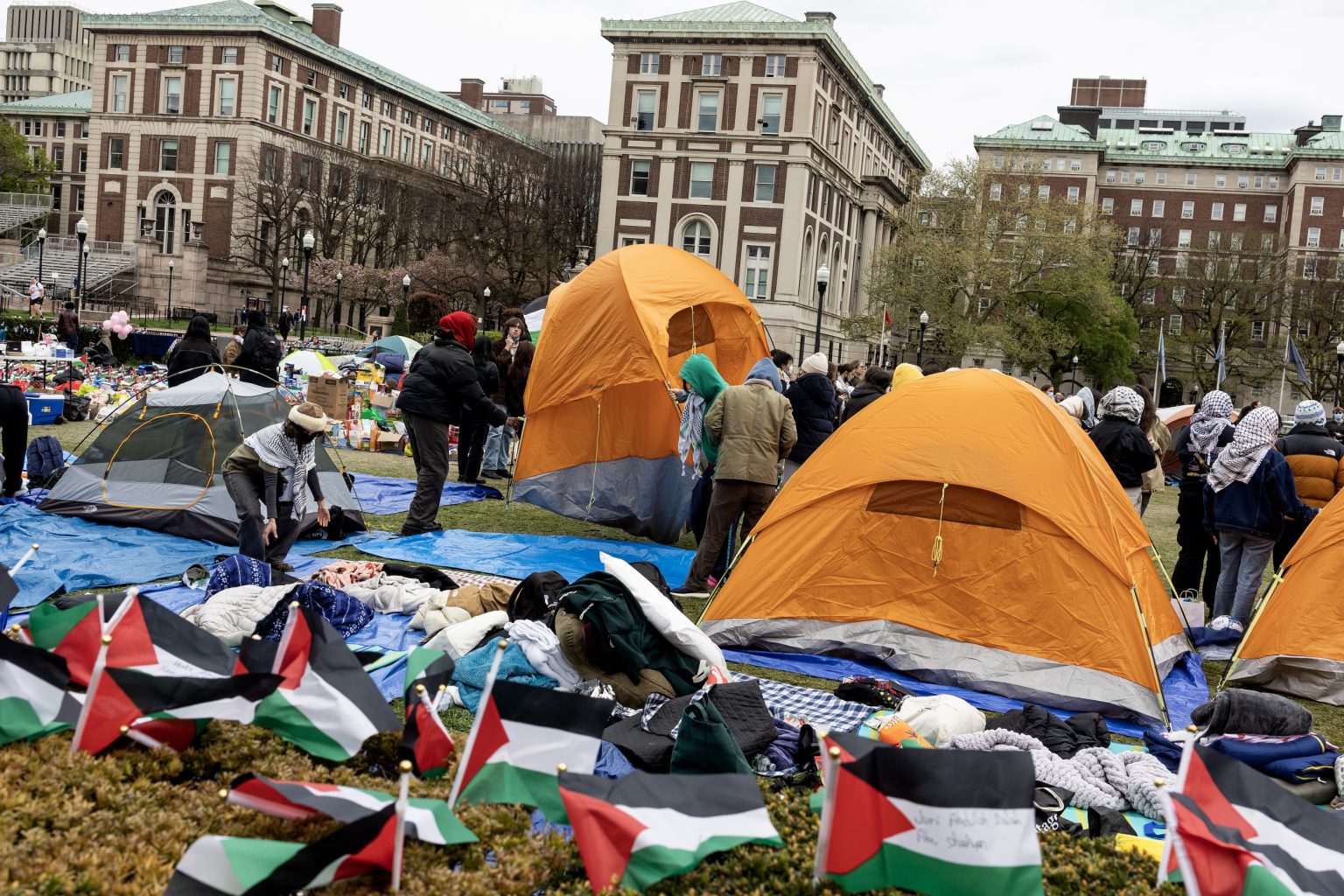Columbia University has made the decision to cancel in-person classes following the arrests of over 100 students who were refusing to leave a pro-Palestinian encampment on campus. University president Nemat Minouche Shafik explained that classes would be transitioned to virtual platforms in order to deescalate tensions and allow time for consideration of next steps. This move comes after Shafik faced criticism from Republicans during a House hearing on antisemitism on campus, adding to the already heightened atmosphere surrounding the situation.
The occupation of a central lawn on the Columbia University campus by pro-Palestinian students has been a focal point of the recent events. Despite the growing tensions and arrests of individuals involved in the encampment, the students continue to advocate for their cause. President Shafik’s decision to move classes online is an attempt to reduce animosity and provide an opportunity for reflection on the situation at hand. This development represents a significant shift in the university’s response to the ongoing protests and highlights the complexities of balancing academic freedom with campus safety and order.
As a part of its commitment to challenging conventional wisdom and fostering connections, Newsweek is dedicated to providing coverage of stories that delve into contentious issues such as the one unfolding at Columbia University. The decision to cancel in-person classes underscores the seriousness of the situation and the need for a peaceful resolution. By moving classes online, the university hopes to create a more secure environment while allowing for a thoughtful approach to addressing the underlying issues fueling the protests. This action reflects a desire to promote dialogue and understanding among all parties involved.
The events at Columbia University serve as a microcosm of broader societal tensions surrounding the Israeli-Palestinian conflict. The pro-Palestinian students’ occupation of campus grounds and subsequent clashes with authorities are indicative of the deep-rooted divisions and passionate beliefs held by individuals on both sides of the issue. In the midst of these turbulent times, it is crucial for institutions like Columbia University to navigate sensitive topics with care and sensitivity, ensuring that all voices are heard and respected. The cancellation of in-person classes is a step towards creating a space for constructive dialogue and engagement.
President Shafik’s decision to address the situation at Columbia University through virtual classes reflects an awareness of the need to prioritize safety and well-being while upholding the values of academic freedom and inclusivity. By providing a platform for students to continue their education remotely, the university is demonstrating a commitment to finding common ground and fostering a more harmonious campus environment. This move also highlights the challenges faced by educational institutions in managing complex and polarizing issues, underscoring the importance of constructive dialogue and mutual respect in addressing conflicts and disagreements.
In conclusion, the recent developments at Columbia University underscore the complexities of addressing contentious issues on college campuses and the broader societal implications of the Israeli-Palestinian conflict. By canceling in-person classes and moving to virtual platforms, the university seeks to deescalate tensions and promote a peaceful resolution to the ongoing protests. Newsweek’s coverage of these events reflects its commitment to challenging conventional wisdom and fostering connections in the pursuit of common ground. Moving forward, it is essential for all parties involved to engage in constructive dialogue and mutual respect in order to navigate these challenging times and build a more inclusive and harmonious community.








